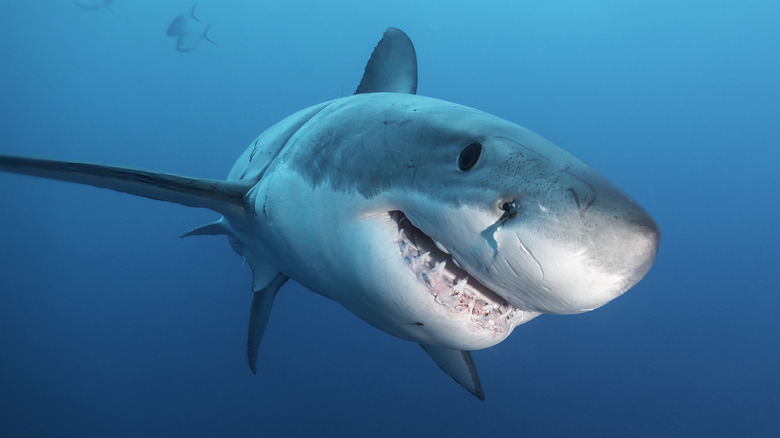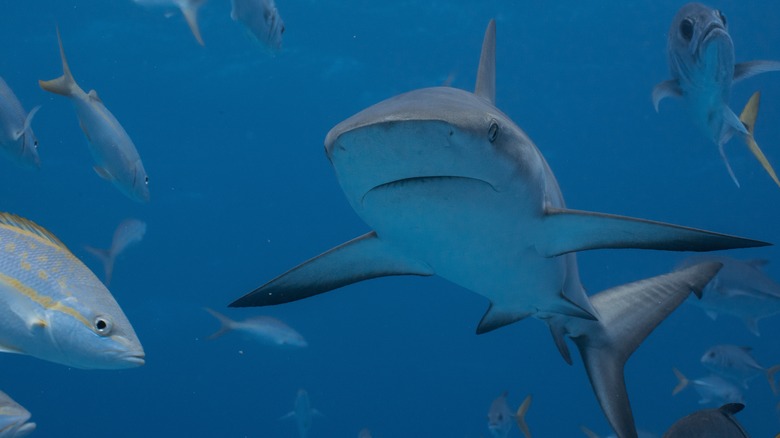The Real-Life Cocaine Shark Is Scary - But Not For The Reason You May Think
In the wake of the exploits of the real-life "Cocaine Bear" and its human-killing big screen counterpart, it seems as if every enterprising B-movie producer under the sun decided to turn their drug-dipped lens toward the animal kingdom. Many creatures have subsequently been turned into a cocaine-influenced killing machine on the small screen. Among them was a shark-based variation of the theme — 2023's science fiction thriller "Cocaine Shark," which saw a great white consume a stimulant provided by mobster-run research scientists. It breaks free and chaos consumes the lab in which it is being kept. It's kind of like that moment in the "Gladiator II" trailer where the gladiators fight sharks and rhinos — minus the gladiators and rhinoceros.
The reality of a shark that's ingested cocaine is a far uglier, more frightening, and more depressing than a B-movie could depict. Any amount of a foreign substance present in animal life is a threat to its existence, generational health, and the ecosystem at large. It also portents bad news for human life in the region, as one environmental problem will cascade into another. It's scary news due to the general threat it poses to life on the planet.
Per the Shark Week program "Cocaine Sharks," environmental pollutants dropped into the Gulf of Mexico have begun to impact the behavioral and physical health of the aquatic animals living in the region — but it had some interesting findings about any drugs which may have found their way into the water thanks to human interference.
Sharks have already had behavioral changes thanks to drug exposure
The research of the documentarians behind "Cocaine Sharks" didn't manage to prove conclusively whether or not enough cocaine has been dropped into the Gulf of Mexico to affect the animals living in the area. But it's definitely occurred elsewhere in the world; in Brazil, testing on 13 sharpnose sharks taken from the waters surrounding Rio de Janeiro found the drugs in sharks' muscles and skin, per findings published in The Science of the Total Environment. Besides the notion that sharks might be eating bits of cocaine bales thrown overboard by drug suppliers, Science notes it's possible that an ecological link between wastewater and runoff flowing into the ocean, the wildlife in the area, and the humans that eat some of that seafood fished from those waters may have formed.
It turns out that sharks ingesting cocaine might be an American problem as well, as some scientists note (per The Guardian) sharks nibbling on cocaine bales near coastal Florida have resulted in the animals displaying odd behaviors, including swimming closer to humans than normal. Either way, it's not a healthy thing for the planet and hopefully doesn't presage a bigger disaster on the horizon.
Check out everything "Cocaine Bear" doesn't tell you about the true story to read more about the 2023 film.
If you or anyone you know needs help with addiction issues, help is available. Visit the Substance Abuse and Mental Health Services Administration website or contact SAMHSA's National Helpline at 1-800-662-HELP (4357).

